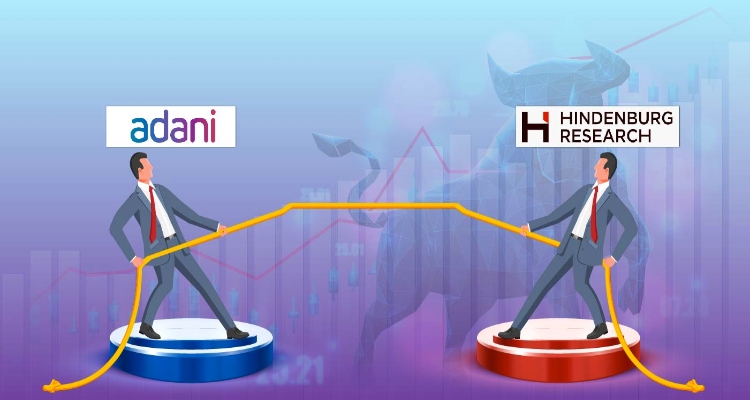
On Tuesday Supreme Court has given a clean chit to the Adani in the Hindenburg Report case. The Supreme Court has said that on the basis of the evidence given so far, no evidence has been found against Adani Group. Therefore the case will not be handed over to SIT.
The Supreme Court’s recent decision on Wednesday brought relief to the Adani group of companies by rejecting the transfer of the probe into the Adani-Hindenburg issue from the Securities and Exchange Board of India (SEBI) to a Special Investigation Team (SIT) or CBI. Justices DY Chandrachud, PS Pardiwala, and Manoj Misra stated that the Supreme Court has limited power to intervene in SEBI’s regulatory domain.
They emphasized that the judicial review’s scope is confined to determining violations of fundamental rights. The court concluded that the case’s facts did not warrant transferring the investigation to another agency and found no reason to doubt SEBI’s investigation. The verdict responded to petitions seeking court-monitored or CBI probes into Hindenburg Research’s allegations against the Adani group for stock market violations.
The bench clarified that there were no regulatory oversights by SEBI, asserting that the regulator cannot solely act on media reports, though such reports could be considered as inputs. SEBI was directed to complete its probe into two out of 24 pending cases within three months.
This case stemmed from allegations made in a report by Hindenburg Research, claiming Adani’s inflation of share prices, which reportedly caused a significant decline in Adani companies’ combined share value by approximately USD 100 billion. The Adani Group refuted these claims, asserting compliance with all legal requirements.
Petitions alleged that amendments to the Securities and Exchange Board of India Act shielded the Adani Group’s regulatory contraventions and market manipulations from detection.
The apex court instructed SEBI to conduct an independent investigation and formed an expert committee led by retired Supreme Court Justice AM Sapre. In a report last May, this committee found no apparent lapse by SEBI.
During the case’s proceedings, the Supreme Court stressed its lack of reason to discredit SEBI’s investigation and refused to treat the Hindenburg report’s contents as factual evidence.
Advocate Prashant Bhushan, representing one of the petitioners, highlighted several factual revelations in the Hindenburg report. He urged the court to assess SEBI’s credibility in its investigation and consider forming an independent entity like an SIT for further probing.
Earlier in January, following the report of Hindenburg Research and the reply of Adani Group, 4 PILs were filed in the Supreme Court. In these PILs, an appeal was made to order various types of investigations against Adani Group.
Only after hearing these petitions, on March 2, the Supreme Court had ordered the market regulator SEBI to investigate the disclosures of Adani Group and the manipulation of share prices. The court had clearly said that SEBI should investigate whether Adani Group has violated the existing rules or not.
SEBI said in its report submitted on August 25 that it has completed the investigation in 22 out of 24 cases, in 2 cases the investigation has not been completed due to delays from foreign institutions.
While hearing a petition, the Supreme Court had directed to form an independent committee. This committee had to report on the shortcomings in the functioning of market regulator SEBI in the Adani case. A committee was formed under the leadership of retired Justice Abhay Manohar Sapre. This included former SBI MD OP Bhatt, KV Kamath, Nandan Nilekani, Somashekhar Sundaresan and retired Justice JP Deodhar.




